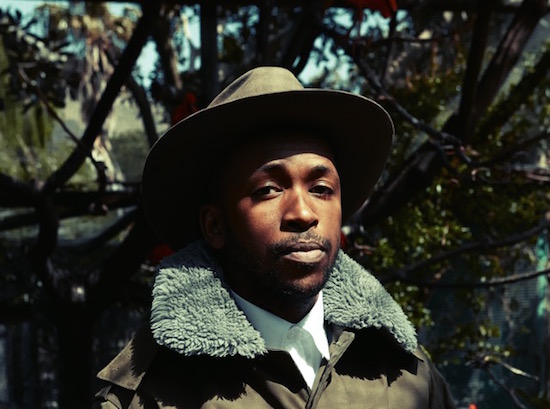Flipping through the radio dial can give a unique understanding of location and moment. You can quickly sample the most popular rock, hip hop, country, electronic music, and more, as well as the classics that inspired them all. The voices start to blend, creating an amalgam language that reveals the scope and diversity of society – but also the threads that tie everything together. In South Africa, that metaphorical language becomes even more complex because of the eleven literal official languages spoken in the country, each signifying unique histories, traditions, and cultures.
That reality didn’t change once the FM dial was replaced by mp3s and streaming. In fact, that meant South Africans both had further access to the music of the outside world (rather than relying on inconsistent, often poorly-supplied record shops) and were able to share singular musical traditions with a wider audience. That change was essential for Spoek Mathambo. The experimental producer grew up in South Africa in the late 80s and 90s exploring whatever music he could get his hands on, whether that meant through his father’s record collection, browsing CDs at a local store, or being passed a cassette by a friend on a roadtrip.
Those experiences culminated in a career that has led Mathambo around the world, allowing for him to grow and yet always rooted in his home country. For all the influence he draws from American rap and British new wave, he also infuses fragments of South African music, from Maskandi and other Zulu traditions to kwaito, a synth-driven strand of house music mixed with melodic African rhythms and other assorted ephemera. On his latest album, the superb Mzansi Beat Code, Mathambo spins the dial on the radio of his own experience of the world, weaving pieces of house, electro, rap, techno, and more into one proud flag – evoking the many languages and traditions of his home country. But it also does far more than assimilate other traditions; Mzansi Beat Code showcases Mathambo’s own language, one that de-exoticizes South Africanism, exalts its history, and speaks its own future.
Click the photo of Spoek Mathambo below to begin reading his selections. His new album Mzansi Beat Code is out now


